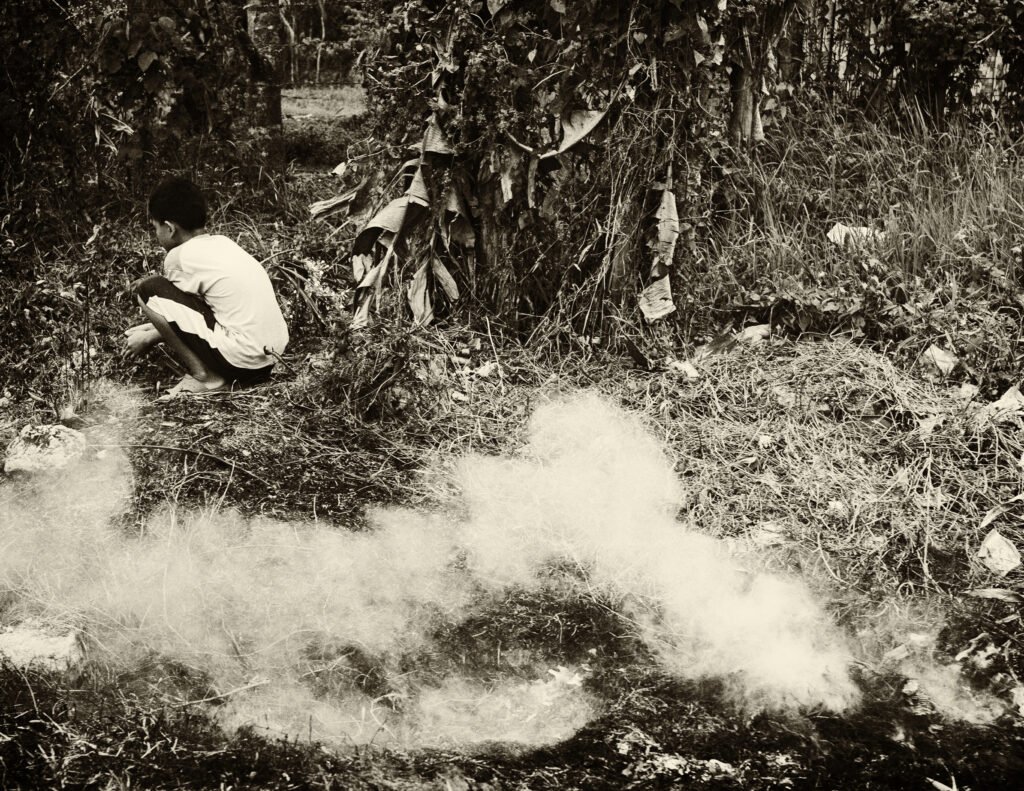
At the edge of a narrow alley in Tondo, where concrete meets mud and stray dogs nose through plastic bags, a seven-year-old boy crouches low over a small pile of garbage. His name is Joel, wearing a tattered shirt and a pair of shorts held up by a knotted string. His hands are dirty. His eyes sharp.
He is small for his age, but moves with the gravity of someone twice as old.
In one hand: a crumpled matchbox. In the other: a bundle of plastic wrappers, torn paper, dried leaves—
collected from around the block, from gutters, from yesterday’s leftovers. He strikes once. Nothing.
Twice. A spark. Then a lick of flame curls at the edge of a potato chip bag.
Finally, te fire catches, low and angry. Black smoke rises—thick, toxic, clinging to his skin. He squints through it, squatting with his chin on his knees, watching it burn like it’s a morning chore. Because it is.
His Nanay told him not to play with fire. But she also told him: “We don’t pay garbage trucks. We burn it. Early. Before the barangay captain passes.”
So Joel does what he’s seen others do. Burns what must be burned. To make space. To keep the rats away. To feel useful.
The fire pops and cracks as it eats the plastic. A melted sandal. A candy wrapper. A Styrofoam cup.
Joel waves the smoke away with one hand, holds his nose with the other, coughs once—then waits.
His feet are warm from the heat. His lungs tight, but quiet. Around him, the world stirs: vendors setting up stalls, roosters crowing beside rusted fans, a child crying somewhere over rice that isn’t ready.
No one stops him. No one teaches him about poison in the air. This is just life. In the cracks. On the edges. And when the fire dies down to ash and melted ghosts, Joel kicks dirt over the embers,
picks up a piece of unburned plastic, tucks it into his waistband, and runs off down the alley—his shadow long behind him, his childhood already smoldering.